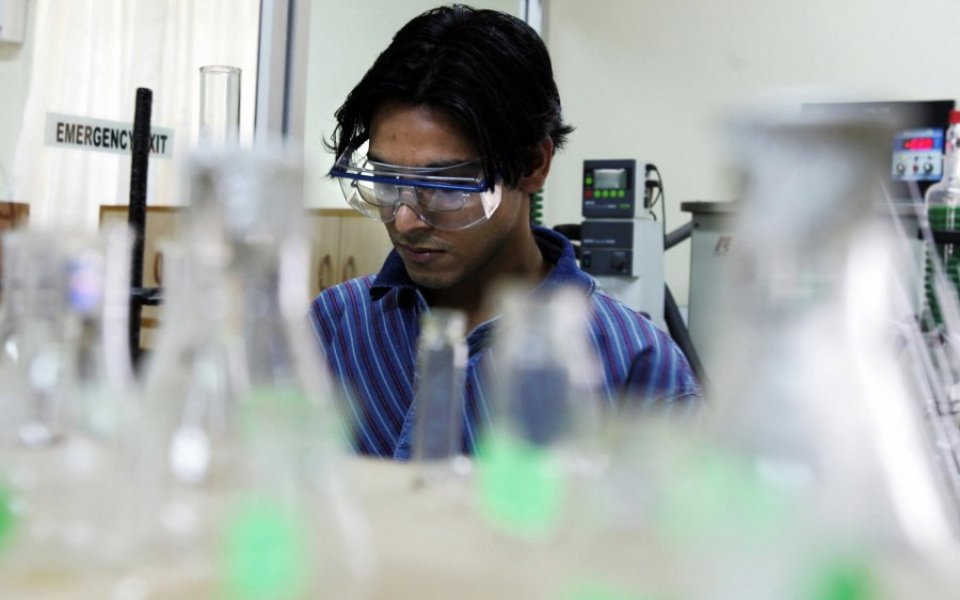National Chemistry Week: Studying science at university can land you the most interesting jobs

When I decided to study chemistry at university, I did not expect that I would be designing what I hope is a perfect frozen Margarita for the Parrot Bay range of frozen pouches.
Like most people who enjoy a cocktail, I had not given a moment’s thought to how drinks were developed and manufactured. I certainly never thought it had anything to do with what I was learning.
But to my surprise, it turned out that a knowledge of what makes a liquid stable is actually vital in making sure a Margarita retains its taste. Flavours like lime – crucial to a good Margarita – are very sensitive to ageing. So you need a grounding in how molecules and chemical constituents interact to rationalise the issue and make sure the drink tastes as good when it is drunk months after it is produced.
Having a theoretical grounding in chemistry and spending hours in laboratories at school and university meant I had a good idea how I could find the answers to these puzzles. It allowed me, as a senior liquid technologist at Diageo, to take the lead in developing new drinks including the frozen Margarita.
I have to admit that I had no idea the job “liquid technologist” event existed until I saw an advert for a placement year at Diageo while at university. I applied, got the position and enjoyed the way it allowed me to combine my chemistry knowledge with design and creativity.
I tell friends that I have the coolest job in chemistry. It’s a great team, I have plenty of responsibility and I get a real thrill from seeing my work in the lab end up on the supermarket shelf.
But I know from my friends who were on the same chemistry course that there are far more career opportunities than we ever thought when we began at university. They too have fulfilling and rewarding jobs that they enjoy in a wide variety of sectors and companies.
You are certainly no longer restricted to the well-trodden paths of entering the big chemical or pharmaceutical companies or going into academia with a degree in chemistry or one of the other sciences. Science plays a key role in product development for many consumer brands, and a degree in this area can take you a long way in the world of business.
That’s why it is good news that the serious decline in chemistry at university has been reversed. Before 2005, it seemed that chemistry was in big trouble, with 30 out of 70 universities with chemistry departments shutting them down because of a lack of applications and funding.
By the time I arrived at Bath University to study seven years later, ten departments had re-opened and the number of chemistry undergraduates had increased by 41 per cent.
But we haven’t yet put right the damage, which is why we should take note of National Chemistry Week. The aim is to show how important the subject is, how interesting it is to study and the career opportunities it brings. Something to which I would be happy to raise a glass.